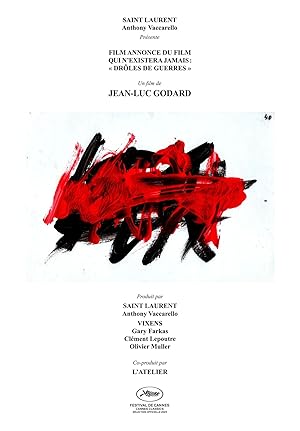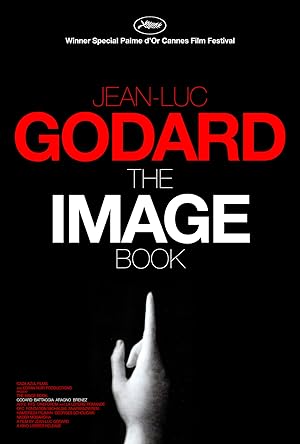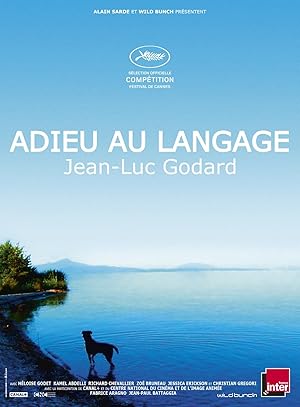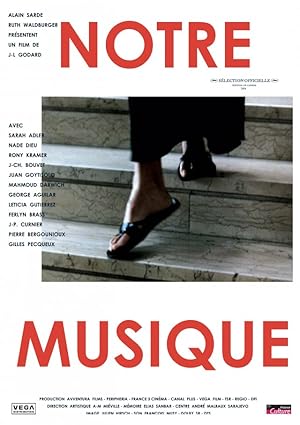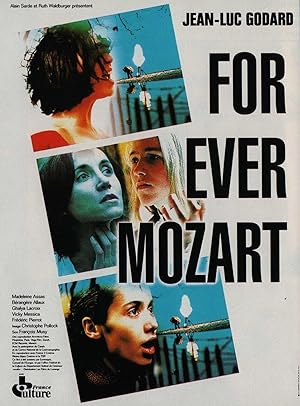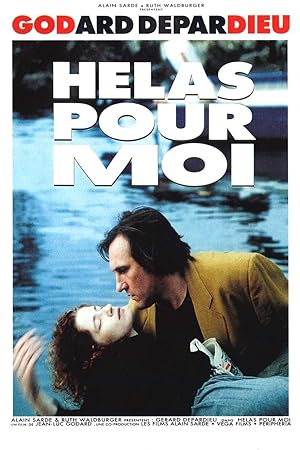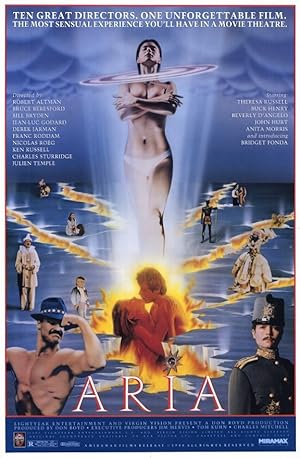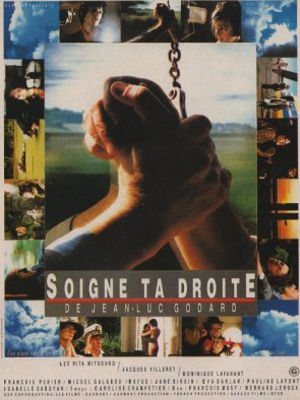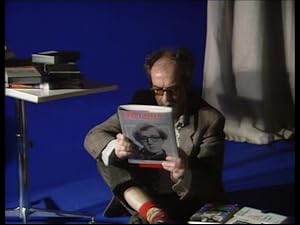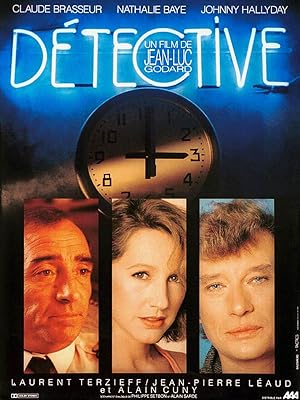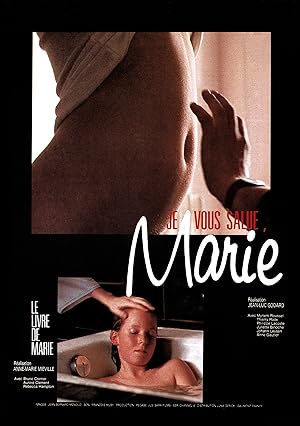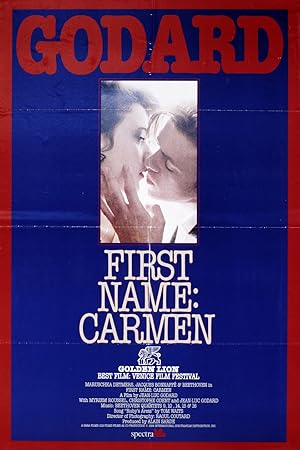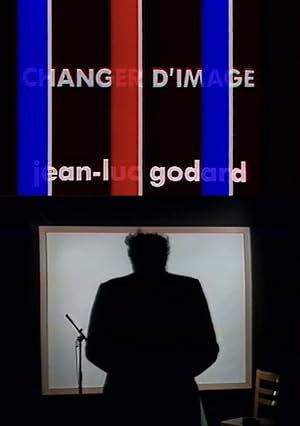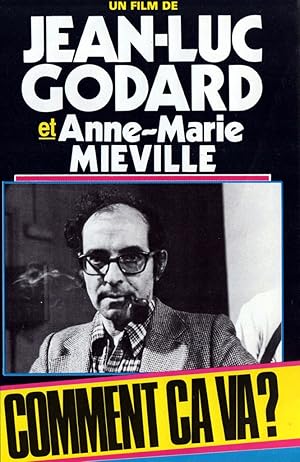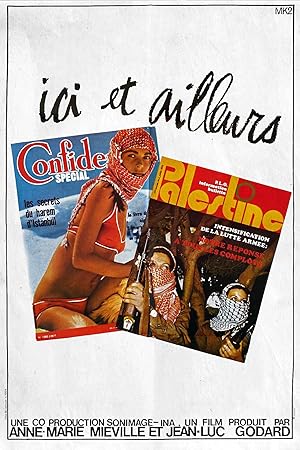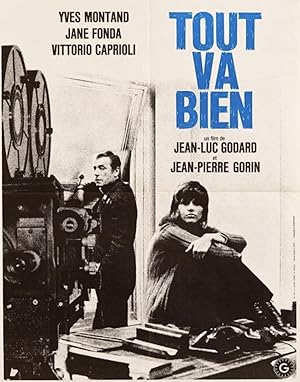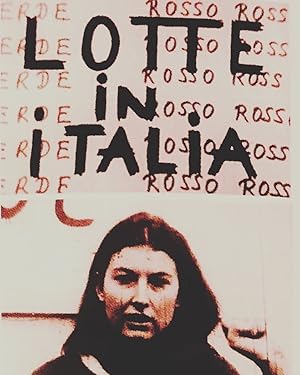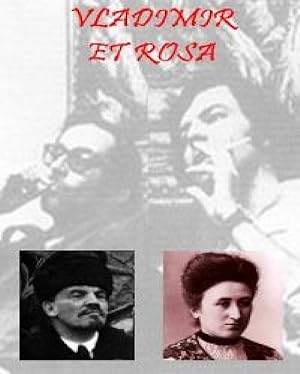Movies by Jean-Luc Godard
Welcome to our dedicated selection of films directed by Jean-Luc Godard. Here, you can explore a diverse range of works that highlight Jean-Luc Godard’s unique vision, storytelling style, and contribution to the world of cinema. Whether you’re an avid fan or discovering Jean-luc godard’s filmography for the first time, this collection will guide you through critically acclaimed masterpieces, hidden gems, and influential titles that have shaped the director’s legacy.
Trailer of a Film That Will Never Exist: Phony Wars (2023)
0
Rejecting the billions of alphabetic diktats to liberate the incessant metamorphoses and metaphors of a necessary and true language by re-turning to the locations of past film shoots, while keeping track of modern times.
The Image Book (2018)
0
In Le Livre d’Image, Jean-Luc Godard recycles existing images (films, documentaries, paintings, television archives, etc.), quotes excerpts from books, uses fragments of music. The driving force is poetic rhyme, the association or opposition of ideas, the aesthetic spark through editing, the keystone. The author performs the work of a sculptor. The hand, for this, is essential. He praises it at the start. “There are the five fingers. The five senses. The five parts of the world (…). The true condition of man is to think with his hands. Jean-Luc Godard composes a dazzling syncopation of sequences, the surge of which evokes the violence of the
Goodbye to Language (2014)
0
The idea is simple / A married woman and a single man meet / They love, they argue, fists fly / A dog strays between town and country / The seasons pass / The man and woman meet again / The dog finds itself between them / The other is in one, / the one is in the other / and they are three / The former husband shatters everything / A second film begins: / the same as the first, / and yet not / From the human race we pass to metaphor / This ends in barking / and a baby's cries / In the meantime, we will have seen people talking of the demise of the dollar, of truth in mathematics and of the death of a robin." - JLG
Notre Musique (2004)
0
A three-chapter (Hell, Purgatory and Paradise) meditation on the city of Sarajevo in the wake of the Bosnian war, on Palestine and Israel, and on war itself.
For Ever Mozart (1996)
0
Episodic film that follows a theater troupe from France attempting to put on a play in Sarajevo. Along their journey they are captured and held in a POW camp, and they call for help from their friends and relations in France.
Oh, Woe Is Me (1993)
0
This complex allegorical tale tells the story of man’s quest for spiritual meaning. When God enters the body of 1980s filmmaker Simon Donnadieu, his wife Rachel realizes that something has gone awry, but chooses to remain faithful to her erratically-behaving husband.
Aria (1987)
0
Ten short pieces directed by ten different directors, including Ken Russell, Jean-Luc Godard, Robert Altman, Bruce Beresford, and Nicolas Roeg. Each short uses an aria as soundtrack/sound, and is an interpretation of the particular aria.
Keep Your Right Up (1987)
0
This film is made up several sketches in which certain actors play several real or fictional roles to a background of rock music. The lead character, played by Godard himself, is an annoyingly perfectionist film-maker determined to wring every last drop of the finest performance possible from his stars.
Meetin' WA (1986)
0
Revolutionary French New Wave director Jean-Luc Godard conducts a twenty-five minute interview with influential and acclaimed American director Woody Allen on the cultural radiation, the ubiquity and significance of Television, and how Television compares with cinema as a medium and form of expression.
Detective (1985)
0
Emile Chenal and his wife, Françoise, leaned on boxing manager Jim Fox Warner to cough up the considerable sum of money that he owes them, with both the police and the mob circling the situation. In the same hotel, Inspector Neveu looks into a murder that took place years before, and his storyline overlaps with the arc of the Chenals.
Hail Mary (1985)
0
A college student gets pregnant without having intercourse, affecting people close and unrelated to her in different ways.
First Name: Carmen (1983)
0
The protagonist is Carmen X, a sexy female member of a terrorist gang. She asks her uncle Jean, a washed-up film director if she can borrow his beachside house to make a film with some friends, but they are in fact planning to rob a bank. During the robbery she falls in love with a security guard. The film intercuts between Carmen's escape with the guard, her uncle's attempt to make a comeback film, and a string quartet attempting to perform Beethoven.
To Alter the Image (1982)
0
1981: at the moment the left won power, French television commissioned Godard to make a film on the theme of change. Like Lettre à Freddy Buache, this film is born of the impossibility of carrying out the commission. For the space where change appears is not the image but the gap between images.
How's It Going? (1978)
0
During the making of a video film about a communist printing press, a union member and a leftist activist discuss how to present their information, especially how to caption two specific images: one of a protest in Portugal, the other of a strike in France. One of them decides to write to his son, a manual worker living outside of Paris with his girlfriend, telling the young man about his troubles.
Here and Elsewhere (1976)
0
Here and Elsewhere takes its name from the contrasting footage it shows of the fedayeen and of a French family watching television at home. Originally shot by the Dziga Vertov Group as a film on Palestinian freedom fighters, Godard later reworked the material alongside Anne-Marie Miéville.
Tout Va Bien (1972)
0
A strike at a French sausage factory contributes to the estrangement of a married filmmaker and his reporter wife.
Struggle in Italy (1971)
0
The film reveals how and why a supposedly revolutionary Italian girl has in fact fallen prey to bourgeois ideology.
Vladimir and Rosa (1971)
0
Jean-Luc Godard's and Jean-Pierre Gorin's interpretation of the Chicago Eight / Chicago Seven trial, which followed the 1968 Democratic National Convention protest activities. Judge Hoffman becomes the character Judge Himmler (played by Ernest Menzer) and the defendants become a microcosms of the French Revolution.
